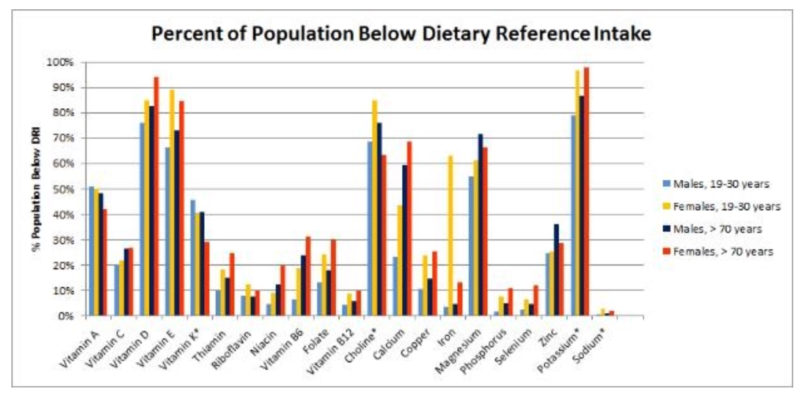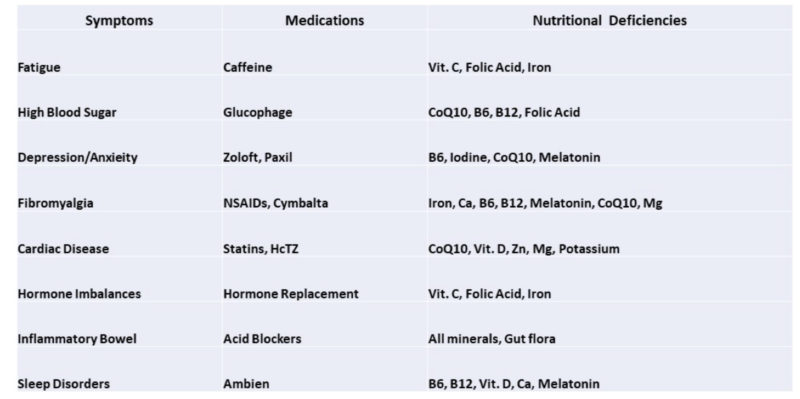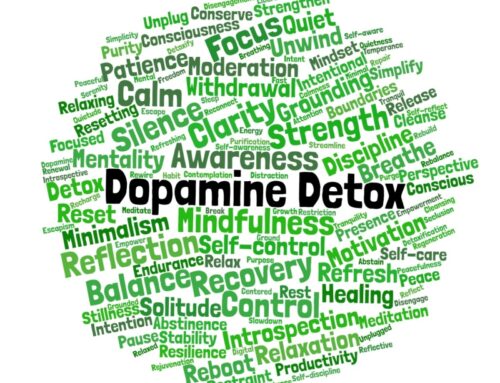You might think that you can get all of your nutrients from healthy food. Numerous health-conscious people do. Unfortunately researchers would disagree with this. As far back as 2002, the Journal of the American Medical Association said, “Most people do not consume an optimal amount of vitamins through diet alone.”
The Food and Drug Association have assigned Dietary Reference Intake values to many nutrients as a daily goal for our nutritional intake. The 2010 NHANES survey showed that the majority of adults were deficient in a great number of the 21 most important nutrients. Potassium, vitamin D, and vitamin E were over 80% deficient, and magnesium and choline were highly deficient as well.

This makes sense for the “normal” American who consumes a high-sugar, high-carbohydrate, high-calorie, and low-nutrient diet. But what about those of us who know that just because an “Oatmeal Cream Pie” has the word oatmeal in its name, it is still not healthy? Those of us who eat a whole-food diet are still becoming nutrient deficient due to many factors:
1. Modern farming techniques have increased the yield of many crops, which causes a depletion of the micronutrients in the soil and likewise in our food.
2. Chemical fertilizers, herbicides, and pesticides significantly reduce the nutritional quality of our food.
3. Prescription drug use greatly reduces your body’s nutrient levels. Check out the chart below of common conditions, drugs prescribed for them, and the nutritional deficiencies the drugs cause. 
4. Your metabolism depends upon vitamins and minerals. It is particularly dependent upon magnesium, B-vitamins, vitamin D, and potassium. During long periods of intense stress, these minerals and vitamins become dangerously depleted. Coupled with a large output of cortisol and adrenaline during high-stress periods, the vitamin deficiency brings metabolism, energy production, and immunity to a halt.
Are all multivitamins the same?
The quality and price of multivitamins vary greatly. Is the $8 bottle of multivitamins from the big box store just as useful as the $30 bottle from the health food store or chiropractor’s office? Price has little to do with it. Although often you get what you pay for, don’t assume that, just because it’s more expensive, the vitamin is better. Look at the ingredients and from where they are sourced to determine if the bottle deserves to be purchased.
- Look for a whole-food multivitamin rather than synthetically made ingredients. When it comes to food, there are very few man-made products that are better than what is found in nature. Look for a vitamin that is sourced from real foods.
- A complete B-complex should be found in the multivitamin, as many of these compounds are needed for metabolism. Look for B1 (Thiamin), B2 (Riboflavin), B3 (Niacinamide), B5 (Pantothenic Acid), B6 (Pyridoxine HCL), B7 (Biotin), and B12 (Cobalamin).
- Does it have carbonate? Carbonate is a mineral salt often combined with calcium and other minerals for stability. If your multivitamin contains calcium carbonate, it is most likely not being absorbed. Carbonate, oxide, and sulfate are all mineral salts that are poorly absorbed. Multivitamins that contain these cheap ingredients should be avoided.
- Is it coated? Many multivitamins are coated in a shell that is difficult to break down. Try dissolving your multivitamin in an ounce of vinegar. If within seven minutes the multivitamin is not breaking apart, then the coating may be preventing absorption.
- What does your body tell you? If you have been taking your multivitamin consistently for 30 days or so, your body should show you some results. If you miss a day, you might feel fatigued, in a brain fog, or even just a little blah. Your hair and nails should be strong and growing at a good healthy rate. You should also see an uptick in your energy levels and metabolism. A multivitamin can’t overcome that Oatmeal Cream Pie, but it should, along with a healthy diet, supercharge your metabolism.
We would all love to be able to get the vitamins and nutrients we need from our foods, but today’s world makes that task very difficult. I would suggest that nearly every man, woman, and child take a good multivitamin on a daily basis. Do your homework, and make sure that what you’re purchasing is a quality choice. Let your body tell you if it is making a difference. If it’s not, search for a different vitamin. A quality multivitamin is another tool to help you become healthier than you have ever been!
Stop in our Roanoke chiropractic and wellness office through April 26 to take advantage of our multivitamin sale. All multivitamins are 10% off!

Daryl C. Rich, D.C., C.S.C.S.






